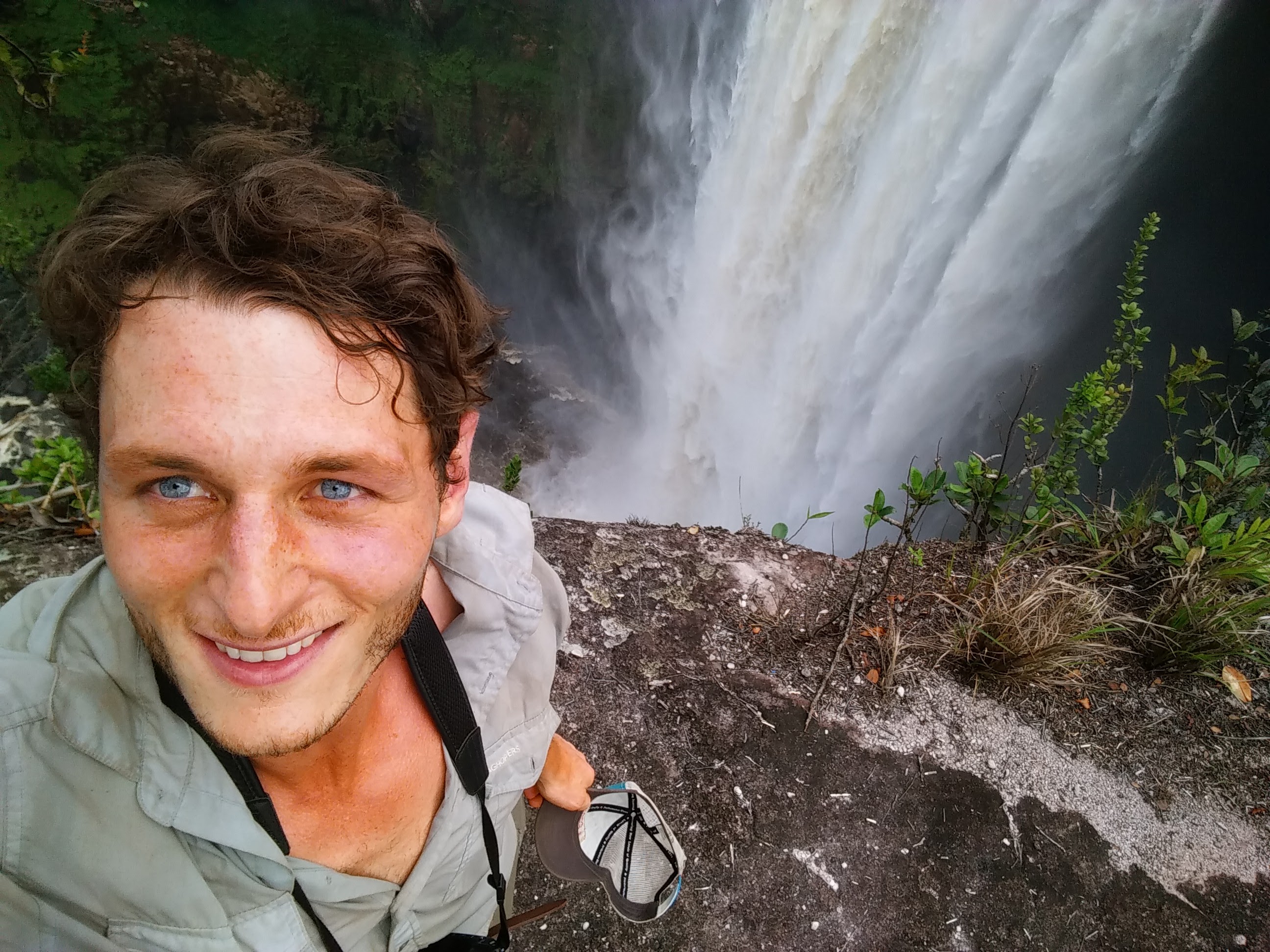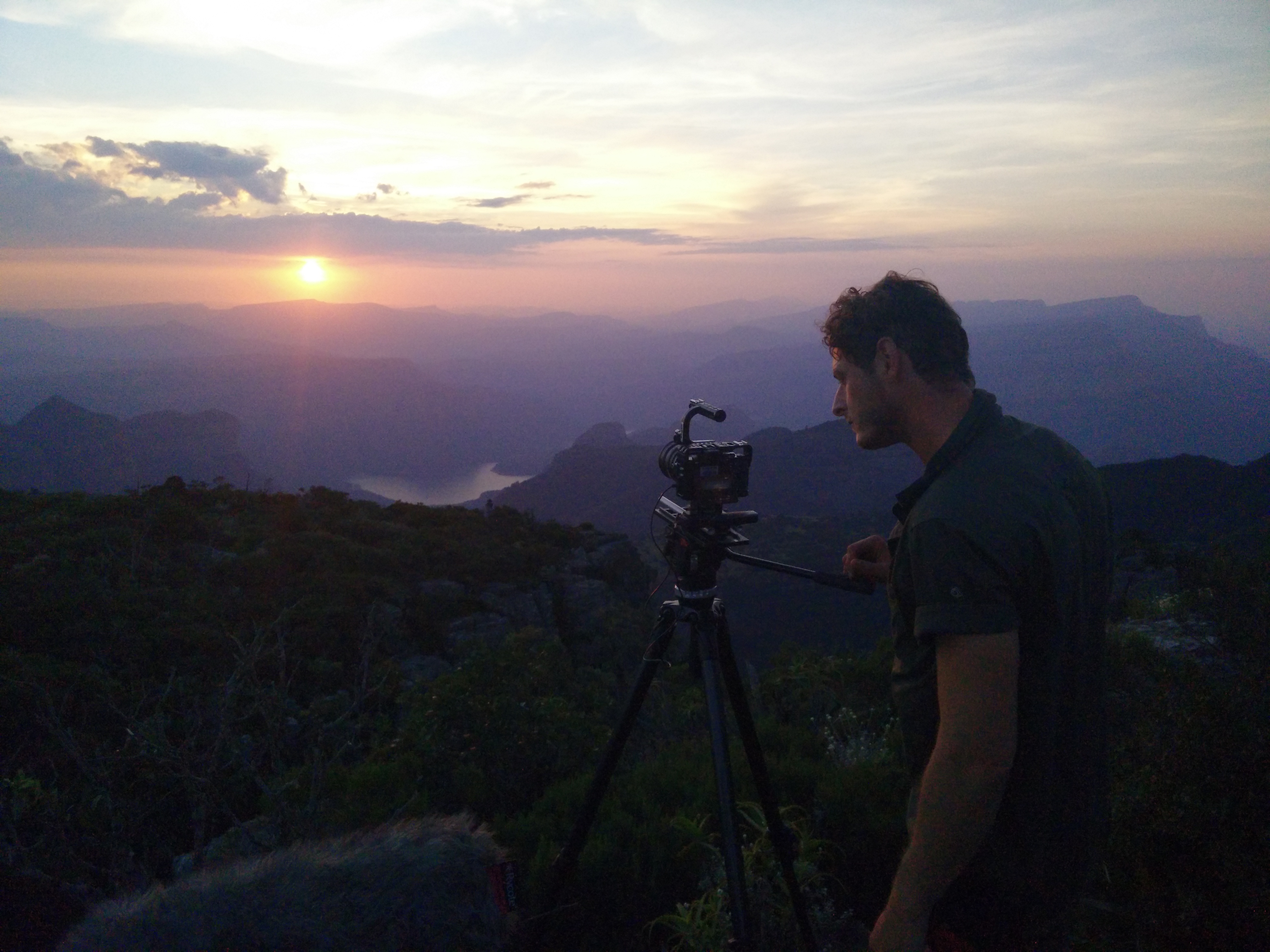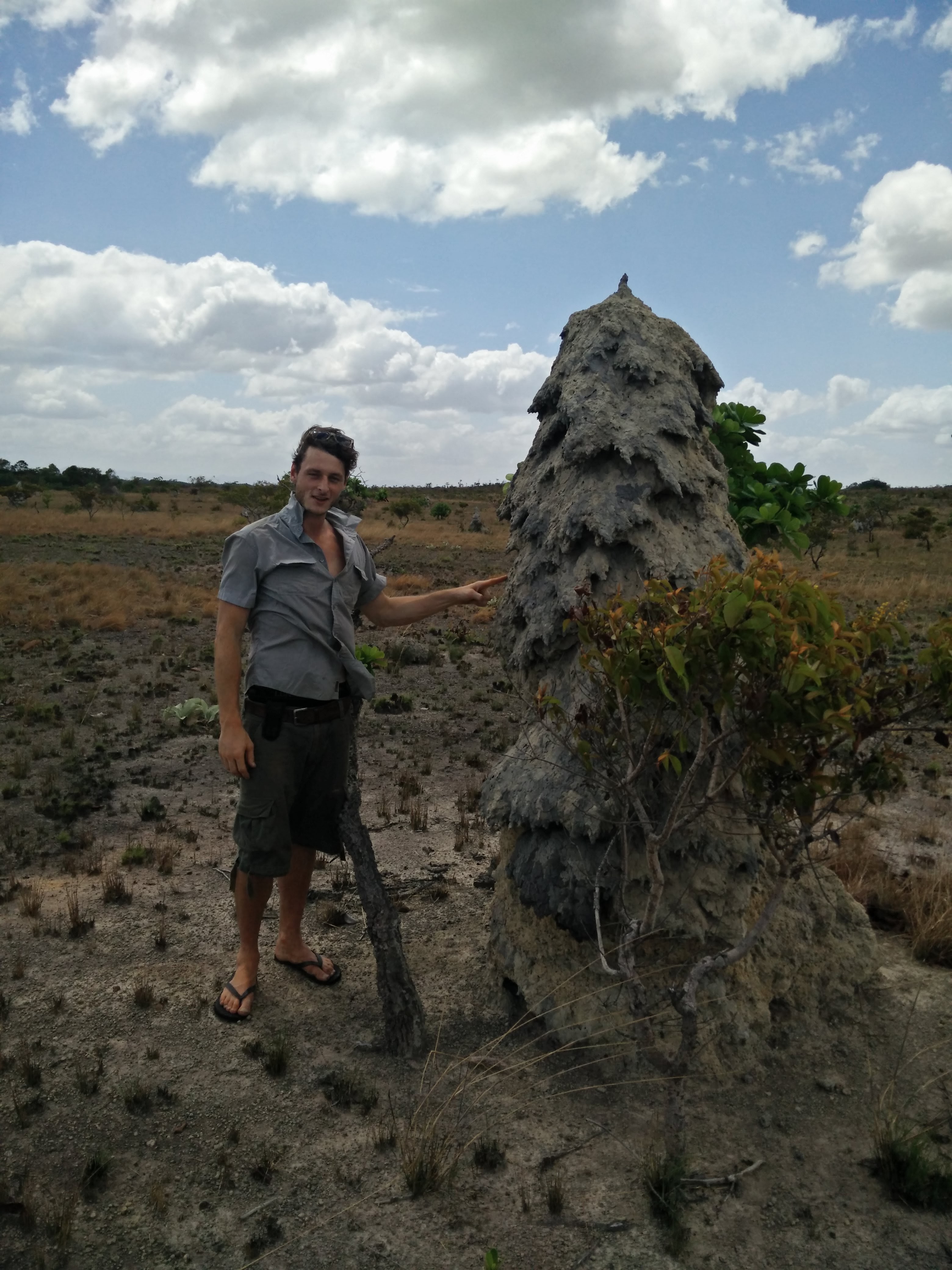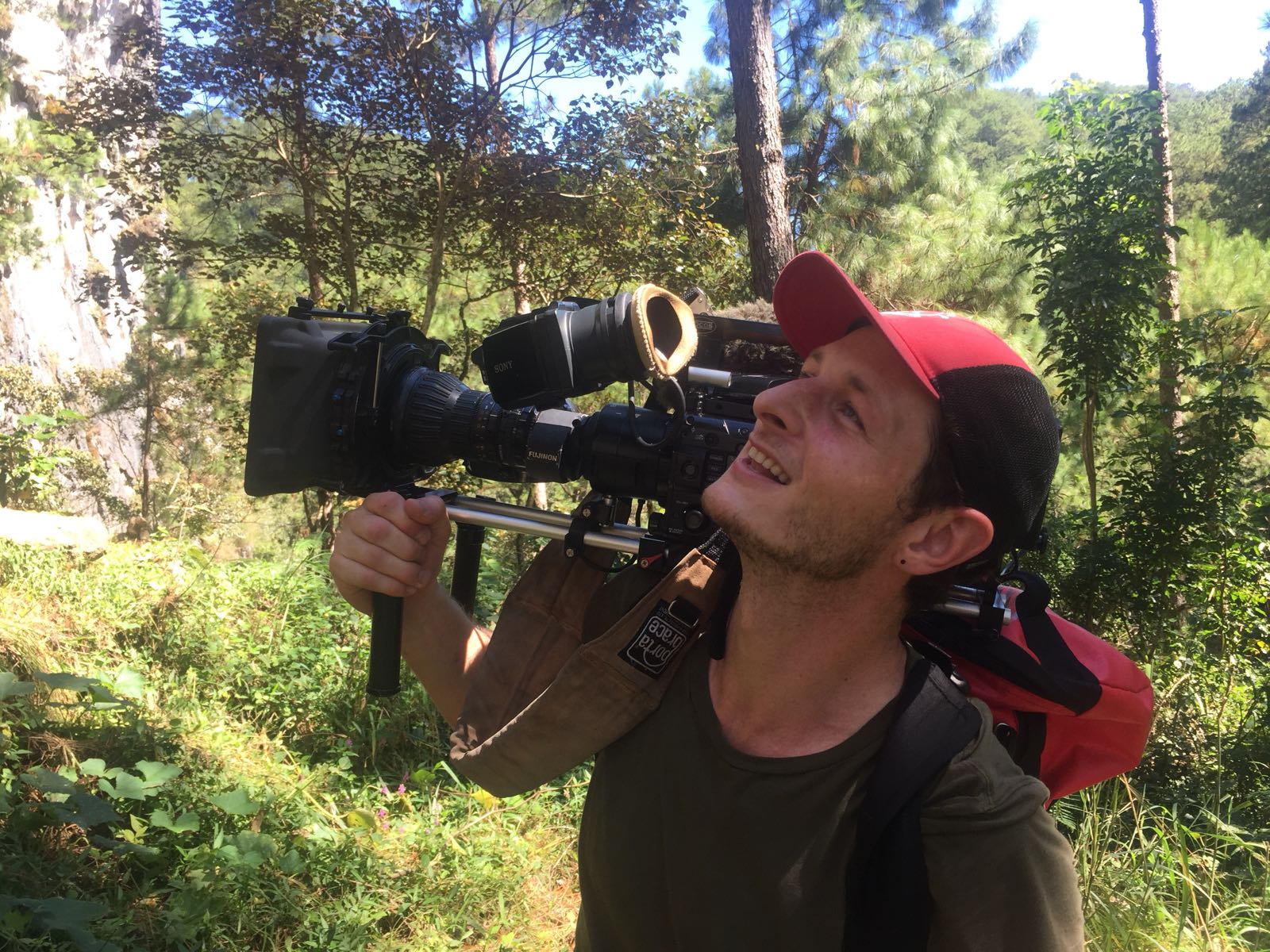We are looking back on some of our MSc graduates who have excelled in scientific research, ecology and conservation around the world since studying with us.
Today we meet Oliver who graduated from MSc Evolution and Behavioural Ecology in 2011 and is now a Producer/Director, currently working with Humble Bee Films.
Hi Oliver, it’s been 10 years since you studied with us, why don’t you tell us a bit about your career in that time that led you to where you are now?

After leaving Falmouth, I moved to London and did a two week internship as a researcher on a TV programme about weather. I then accepted a longer-term position as a runner at Atlantic Productions, mainly because I thought it would help me meet David Attenborough (it did!). In wildlife film, as with all TV, you work your way up from the bottom. I never learned how to fix the printer, but nobody seemed to mind and I soon progressed to full time researcher, assistant producer and finally was let loose as a director.
Why did you choose a career in film? Is there anything in particular you enjoy most?
My epiphany came watching The Life Aquatic with Steve Zissou. I’d spent all my life watching wildlife documentaries, seeing biologists at the ends of the earth spending time with wild animals and falling off of icebergs – but what I hadn’t considered was that the people behind the cameras were living similar lives doing something I was far more suited to. Once I realised that was what I wanted to do, I was pretty single-minded about it; partly because I’d exhausted most other avenues of employment, and partly because for the first time in my life I understood what I was good at. Suddenly, my CV went from a series of unrelated but amusing anecdotes to being a useful and coherent series of life experiences – an asset rather than something to be explained away!
What I enjoy most about my work now is that I get to dip in and out of all different corners of wildlife biology, hear the most interesting stories, and present them in high definition to the rest of the world. I get to travel to those remote places, and see those things first hand – I’ve slept in dry riverbeds in lion country, met Komodo dragons on my way to breakfast, and stood under a fossil of Attenborosaurus with David Attenborough. Working in TV is like having a backstage pass to the world! But most of all, I am doing something that I feel I’m really good at.

How do you think the MSc helped to prepare you for your career?
Being able to interpret research papers and understand the process behind them makes gathering the information needed for filming wildlife possible. When you start in TV, much of what you do is assimilating large amounts of data – as you progress, this turns into telling a story with this information. There is a real sense of scientific and film/television communities working together more closely towards common goals now – both in terms of dissemination information to the public, and also in sharing observations.
 What are your highlights from studying at the University of Exeter?
What are your highlights from studying at the University of Exeter?
One of the main reasons I did the course was the fieldwork component in Kenya. It was a great first foray into somewhere very unlike anywhere I’d been before. I remember being very concerned about taking a back-up pocket camera so I wouldn’t miss anything; the next time I visited Kenya it was with a camera mounted to the underside of a helicopter! Understanding field research and method is a cornerstone of being able to tell wildlife stories – nobody knows more about animal behaviour than the people who study them in the wild, and having some common ground with those people is worth a great deal.
It was also lovely to be living in Falmouth, though in retrospect I should have been a little more adventurous with swimming. Never underestimate how lucky you are to be near the sea, and get in it as much as you can.
We are glad you feel that way too … do you have any advice for those looking to pursue a career in something similar?
Live in the present, absorb everything, and don’t give up. I think everyone who wants to do something even remotely unique has to go through a period where they really doubt whether it’s going to work out, but you need to remain very, very stubborn and not give up. It’s a difficult career to explain to your parents. People will send you applications for other lines of work. You will likely go through a period of only having beans to eat. But you can get a foot in the door, and if you’re really interested in what you’re doing, the rest will happen – one way or another! TV is not a linear progression – you take opportunities when you get them, and you have to expect difficult times as well. If you can hang in there (and live primarily on beans in the beginning), it is definitely worthwhile. With the occasional exception of a scorpion in your hammock.
Finally, do you have any plans for the future?

Another interesting facet of TV is that you are rarely certain what’s going to happen next. Right now there is a big demand for ‘blue chip’ wildlife series from broadcasters and streaming services – think flagship series with incredible visuals that take years to make. But increasingly it seems like companies like Netflix and Amazon are really making more specialised programming more viable – things that wouldn’t be commissioned for TV are suddenly being made – and watched!
I think all of us working with nature want to create some change in the world, or highlight some issue that’s dear to us. What I hope to do is to fan those sparks in others that were lit in me watching nature programmes when I was young. Jacques Cousteau said, ‘People protect what they love’ – if we can make people love the natural world, then we’re doing our jobs properly.
Thank you Oliver!
If you want to read more profiles from MSc Evolution and Behavioural Ecology graduates follow this link or explore our Graduate in Focus homepage to learn more about the degree programmes we have on offer!

